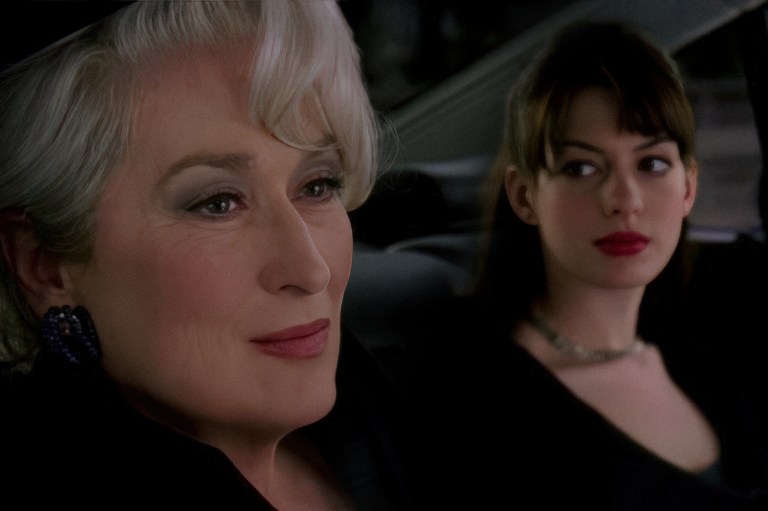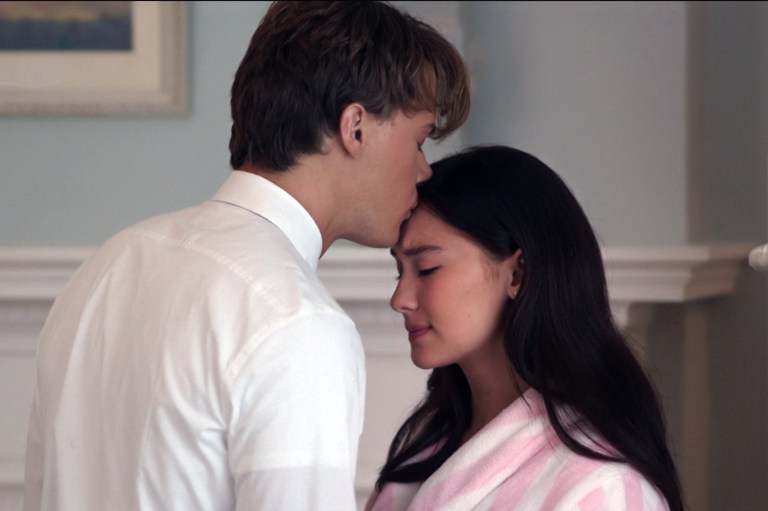
7 Ways ‘And Just Like That’ Redefines Happiness For Any Stage Of Life
Remember when Carrie Bradshaw’s biggest worry was whether Big would call?
Fast-forward twenty years, and she’s dealing with his funeral. The shift from Sex and the City to And Just Like That isn’t just about aging — it’s about completely rethinking what makes life worth living. The Manolo Blahniks and Mr. Big angst feel like ancient history now. Instead, we get Charlotte arguing with her teenager about curfew, Miranda questioning her entire career, and Carrie learning to sleep alone again. It’s messier than the original show ever dared to be. But that messiness teaches lessons about contentment that the younger version of these characters — and viewers — simply weren’t ready to learn.
1. Stop Chasing Perfect, Start Living Real
Charlotte’s always been the one with the color-coordinated calendar and spotless home. Now her teenage kids treat family dinner like a prison sentence. Her art gallery keeps hitting roadblocks. Her marriage requires actual negotiation instead of romantic comedy magic.
But here’s what’s fascinating — she’s happier than she’s ever been. Not because everything’s working out, but because she quit expecting it to. The woman who once cried over a less-than-perfect party now laughs when her soufflé collapses. She’s discovered what therapists charge hundreds to teach: peace comes from dropping impossible standards, not meeting them.
Watch Charlotte in the later episodes. She doesn’t fix everything anymore. She just shows up for whatever mess the day brings. That’s not settling — that’s wisdom.
2. Your Timeline Belongs to You
Miranda Hobbes spent decades climbing the corporate ladder, only to realize she was scaling the wrong building. At 55, she walks away from her law practice to become a graduate student again. Her friends think she’s having a breakdown. Her husband can’t understand why she’d abandon security for uncertainty.
But Miranda knows something they don’t: career success means nothing if you hate your life. The traditional path — work hard, get promoted, retire comfortably — works great if it actually makes you happy. If it doesn’t, then what’s the point of following someone else’s blueprint?
Her decision to start over proves that fulfillment operates on personal time, not social expectations. Some people find their calling at 22. Others at 52. The number doesn’t matter — the courage to change direction does.
3. Real Friends Show Up for Your Mess
The glossy brunches from the original series have been replaced by harder conversations. These women disappoint each other now. They disagree. They grow apart and come back together. Their friendship survives because it’s built on truth instead of performance.
When Miranda comes out later in life, Carrie doesn’t offer advice or judgment — she just listens. When Charlotte struggles with her kids, her friends don’t pretend to have answers. When Carrie can barely function after Big’s death, they show up without being asked.
This kind of friendship only happens when you’re tired of pretending everything’s fine. Authentic connection requires vulnerability, which gets easier with age because you run out of energy for fakeness. The friends who stick around for your actual self, not your highlight reel, become the foundation for lasting happiness.
4. Desire Doesn’t Have an Expiration Date
Hollywood loves to pretend that sexuality ends at menopause, and most TV shows would have shuffled these women off to sexless suburbia by now. But And Just Like That completely ignores this tired narrative. Charlotte and Harry work through bedroom issues with the kind of honesty that younger couples often lack. Miranda discovers parts of herself she never knew existed. Carrie eventually opens her heart and body to new possibilities after a devastating loss. Good for them — and good for everyone watching who needed to see that desire doesn’t magically vanish at 50.
These storylines matter because they challenge the lie that passion belongs only to the young. Physical intimacy can actually get better with age because you know what you want and aren’t afraid to ask for it. There’s something to be said for knowing your own body after decades of trial and error.
5. Grief and Joy Can Share the Same Space
Carrie’s widowhood doesn’t follow any self-help book timeline. Some mornings, she wakes up devastated. Others, she feels oddly peaceful. Sometimes she cycles through rage, sadness, and unexpected laughter before lunch. The show never rushes her toward “closure” because real grief doesn’t work that way.
What emerges from her journey is surprising: loss can make happiness more vivid, not less. When you’ve experienced real sorrow, small joys hit differently. A perfect cup of coffee becomes a moment of grace. An unexpected laugh with a friend feels like a gift. Even mundane pleasures carry more weight because you understand how quickly everything can disappear.
The series suggests that mature happiness isn’t about avoiding pain — it’s about learning to hold multiple emotions simultaneously. Grief doesn’t end joy; it makes joy more precious.
6. Complete Yourself, Then Share the Wealth
Each woman’s individual growth creates tension in their relationships, but ultimately strengthens them. Miranda’s academic pursuits challenge her marriage but lead to deeper honesty. Charlotte’s artistic ambitions disrupt family routines but bring fresh energy to her household. Carrie’s professional evolution affects her friendships but makes them more meaningful.
This balance becomes crucial in midlife when you finally stop defining yourself through other people’s needs. The pressure to be someone’s everything—the perfect wife, devoted mother, loyal friend—starts to lift. You can love people deeply while still pursuing your own interests.
The healthiest relationships in the show involve people who are whole on their own, choosing to share their lives rather than needing others to complete them. That’s not selfish — that’s sustainable.
7. Find Magic in Ordinary Tuesday
The original series lived for grand gestures and dramatic moments. And Just Like That finds its richness elsewhere: morning coffee conversations, successful workdays, quiet evenings, familiar neighborhood walks. The shift from extraordinary to everyday makes happiness more accessible.
You don’t need a promotion, a perfect relationship, or a dream vacation to feel content. A good book, decent conversation, or even a perfectly ripe pear can provide genuine satisfaction. The characters model how to extract pleasure from regular life instead of constantly waiting for special occasions.
This approach transforms daily existence from something to endure between highlights into the actual source of fulfillment. When ordinary moments become worthy of attention, every day offers opportunities for happiness.











